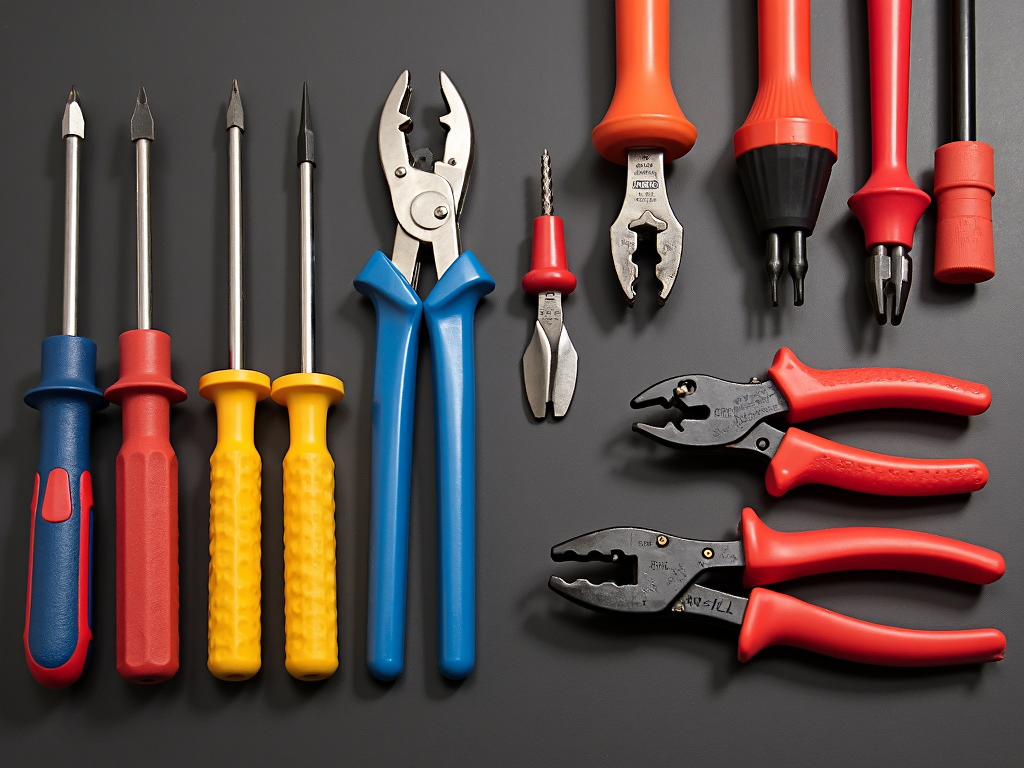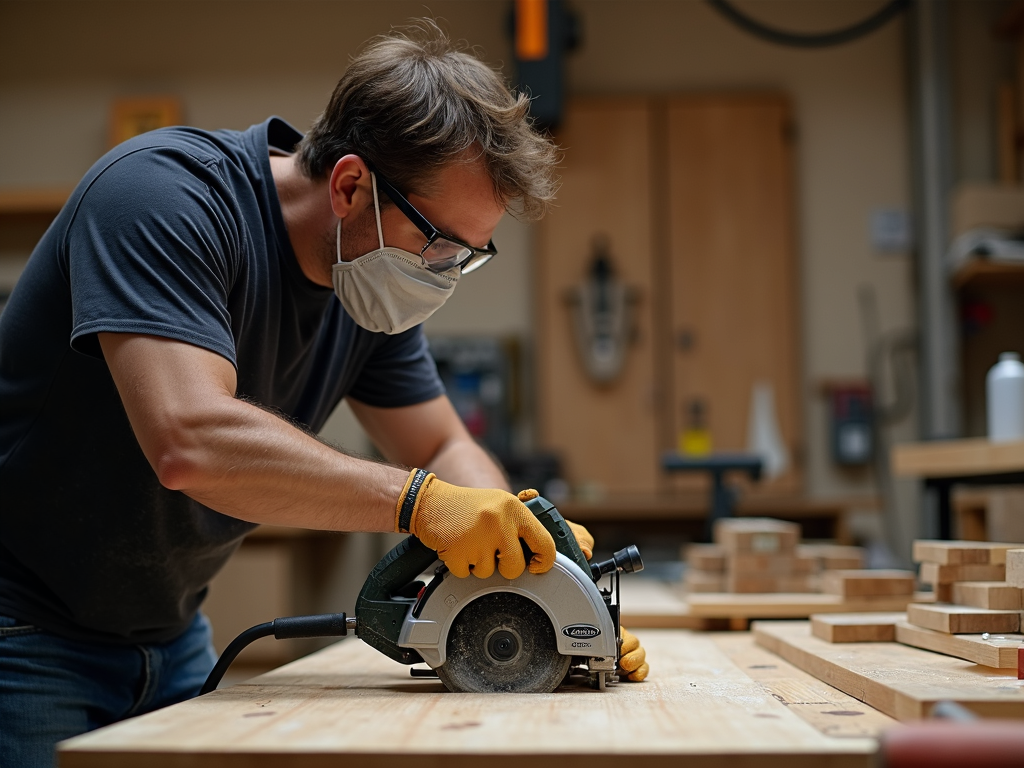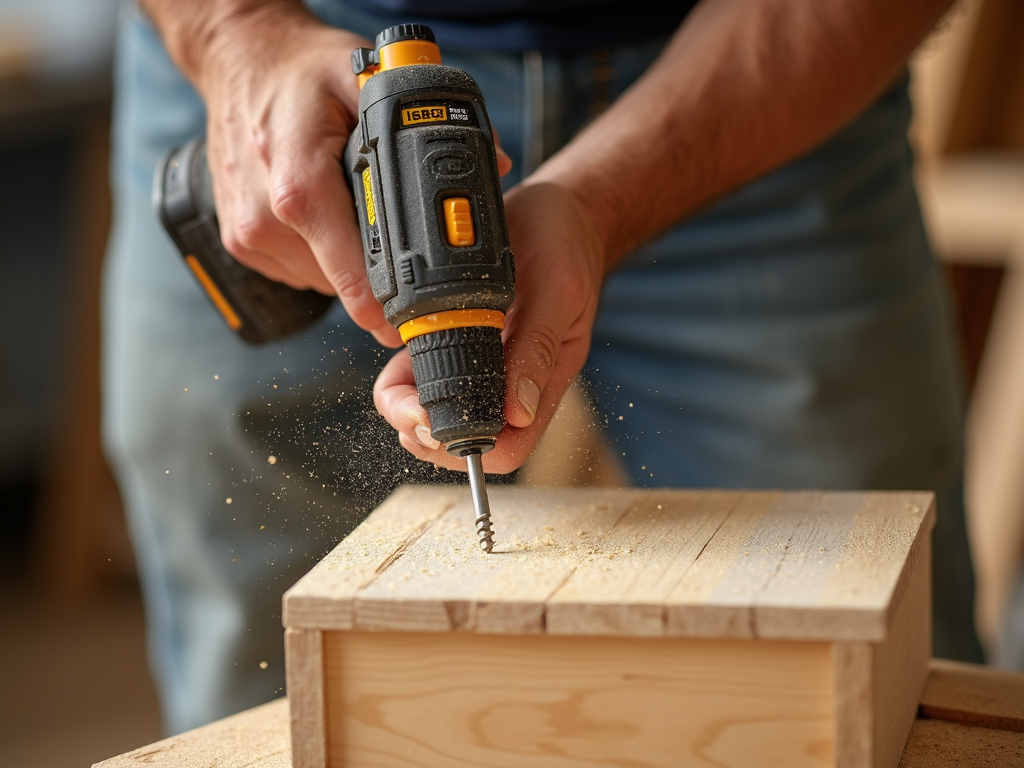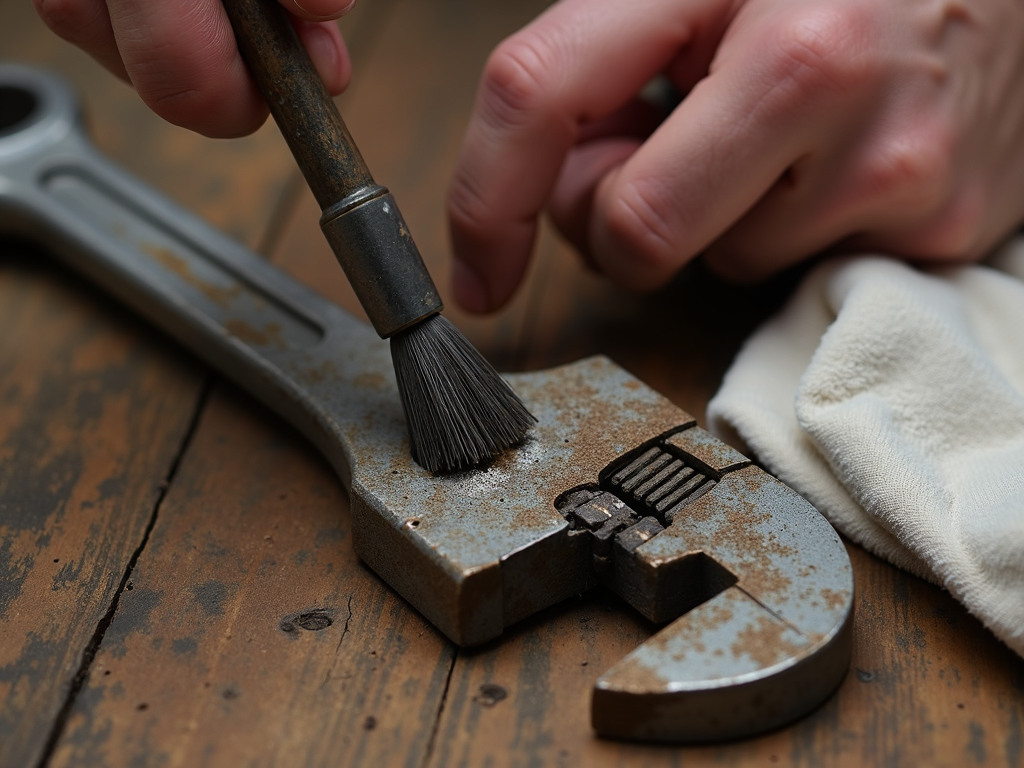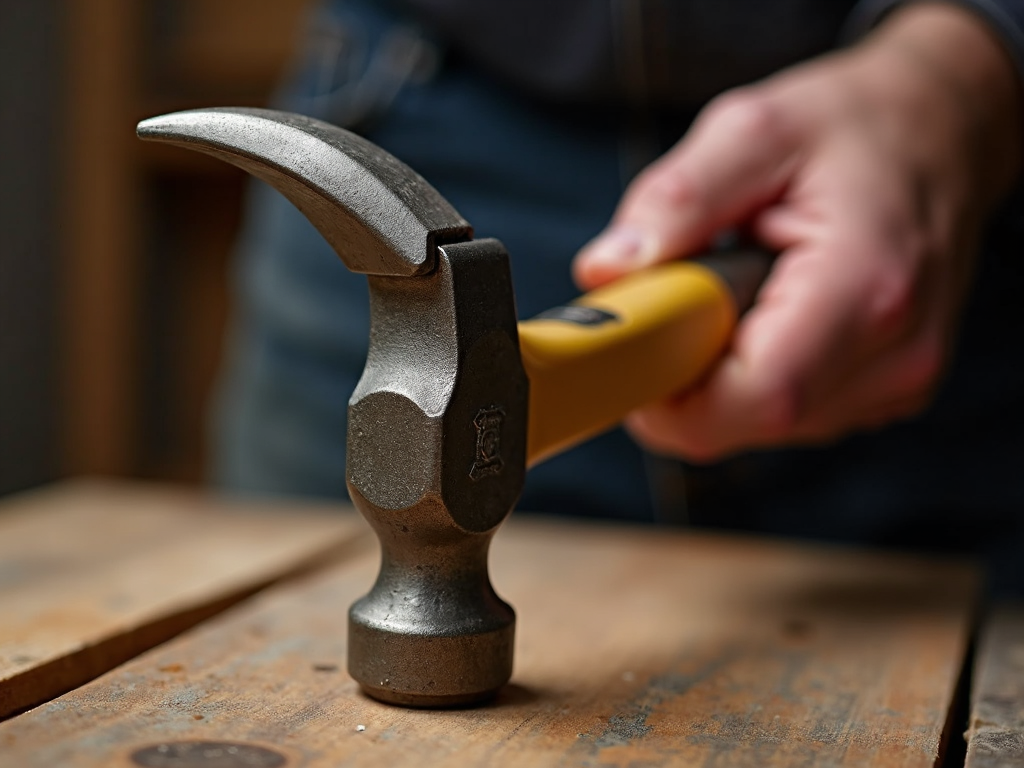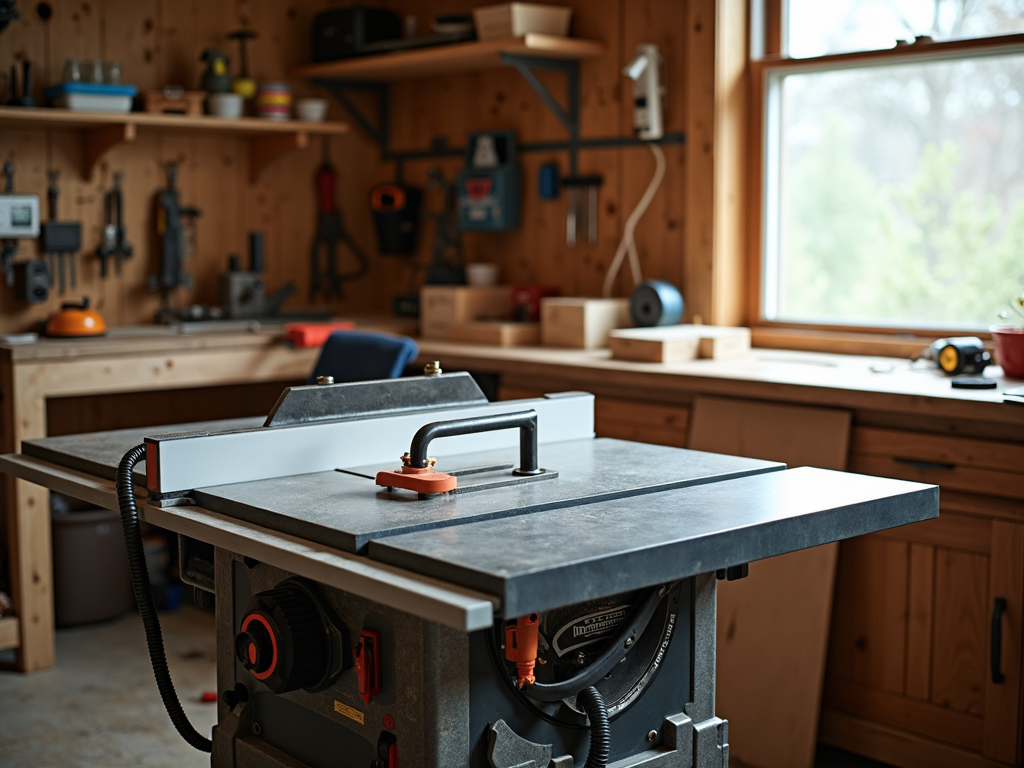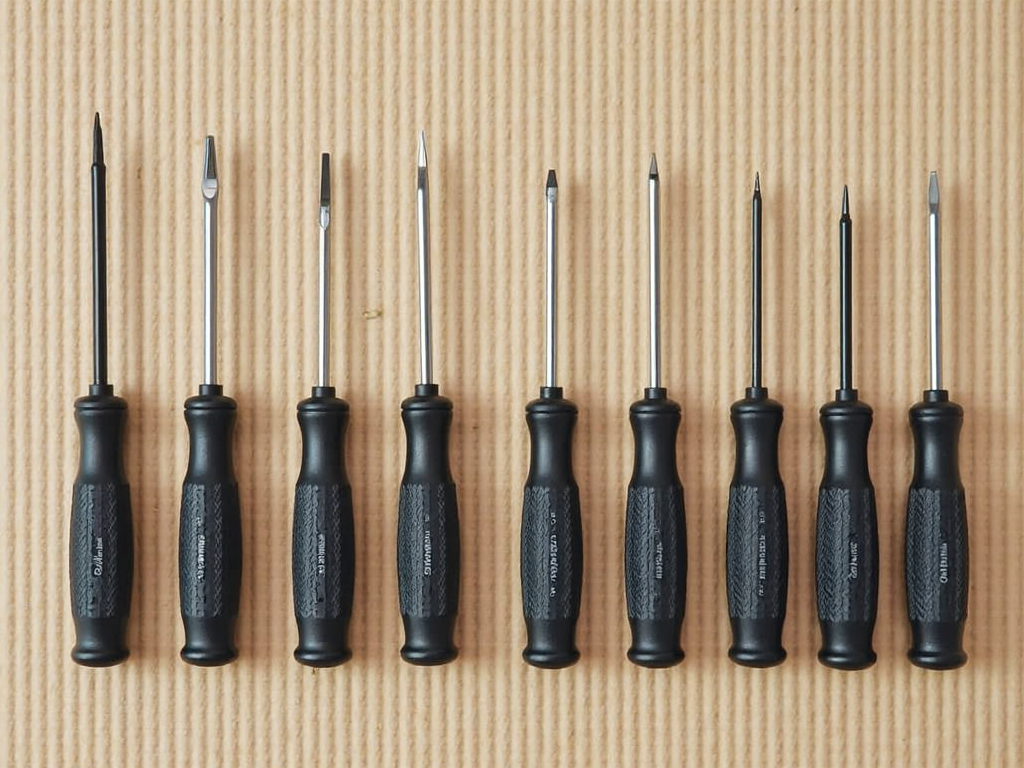Organizing a workshop can be a daunting task, especially when you're on a budget. But with some creativity and resourcefulness, you can create a functional and efficient workspace without breaking the bank. In this article, we'll explore budget-friendly solutions for DIY workshop organization, focusing on organizing tools in a small workshop and maximizing storage space.
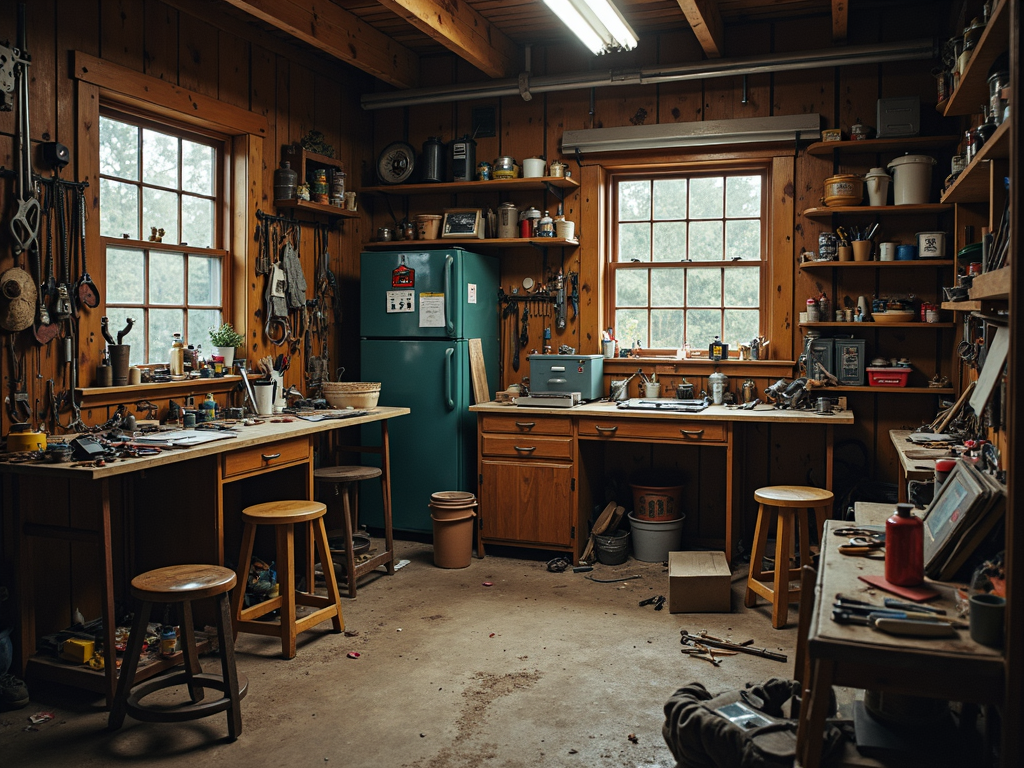
A well-organized workshop not only looks better but also improves productivity and safety. When tools are easily accessible and properly stored, you can work more efficiently and reduce the risk of accidents. Plus, organizing your workshop can help you save money by preventing tools from getting lost or damaged.
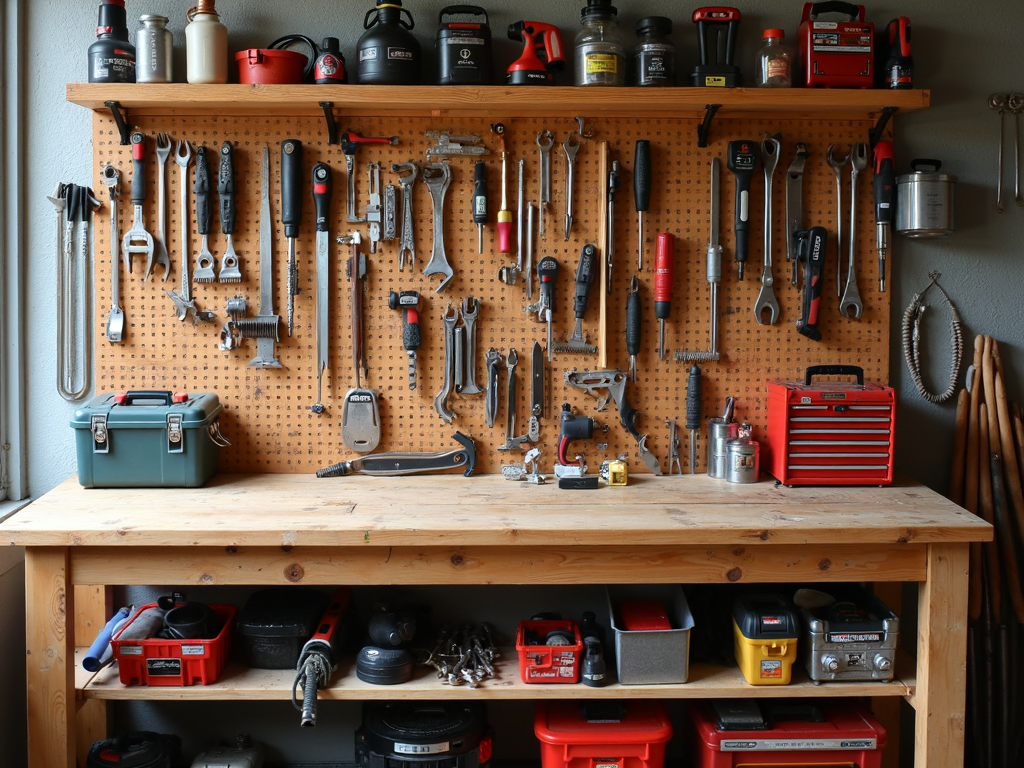
The Importance of Workshop Organization
Before diving into specific solutions, let's discuss why workshop organization is so crucial. A cluttered workspace can lead to frustration, wasted time, and even safety hazards. When tools are scattered or hard to find, you spend more time searching than actually working. This can be especially problematic in a small workshop where space is limited.
By implementing budget-friendly organization solutions, you can:
- Maximize your workspace: Efficient storage allows you to make the most of your available space.
- Improve workflow: With tools and materials easily accessible, you can work more smoothly and complete projects faster.
- Enhance safety: Proper storage reduces the risk of accidents caused by tripping over tools or mishandling equipment.
- Protect your tools: Organized storage helps prevent damage and extends the life of your tools.
Budget-Friendly Storage Solutions
Now, let's explore some cost-effective ways to organize your workshop. These solutions are perfect for DIY enthusiasts looking to optimize their space without spending a fortune.
1. Pegboards: Versatile and Affordable
Pegboards are a classic workshop organization tool, and for good reason. They're inexpensive, easy to install, and incredibly versatile. You can hang a wide variety of tools on a pegboard, from hammers and screwdrivers to power tools and gardening equipment.
To make your pegboard even more budget-friendly, consider using reclaimed wood or repurposing an old pegboard. You can also find affordable pegboard kits at most hardware stores.
Tip: Paint your pegboard a light color to make it easier to see your tools and create a brighter workspace.
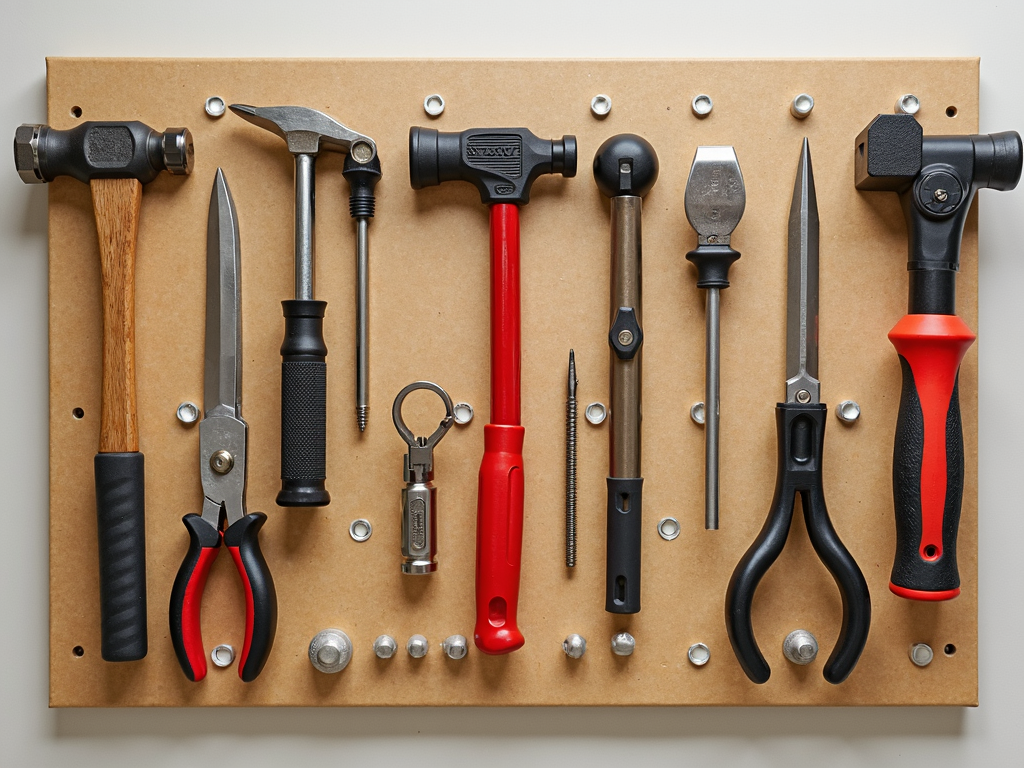
2. Shelves: Utilize Vertical Space
Shelves are another excellent way to maximize storage in a small workshop. By utilizing vertical space, you can free up valuable floor area for workbenches and larger equipment.
For a budget-friendly option, consider building your own shelves using reclaimed wood or inexpensive lumber. You can also repurpose old bookcases or cabinets to create additional storage.
Tip: Install shelves at different heights to accommodate tools and materials of various sizes.
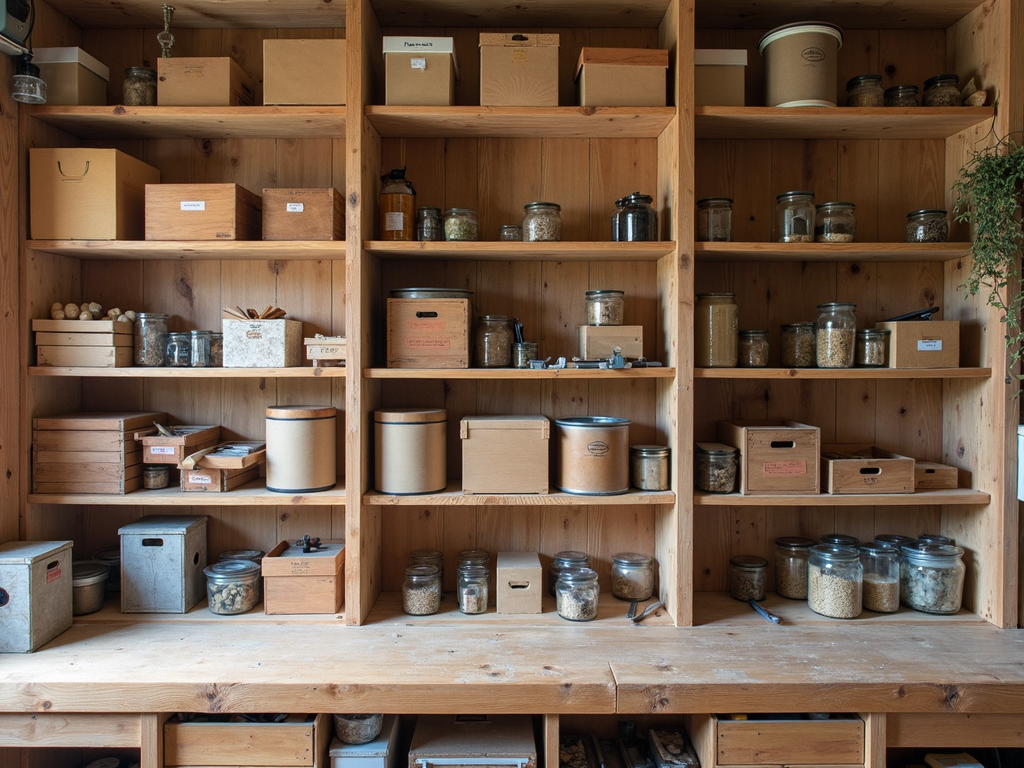
3. Toolboxes and Cabinets: Keep Tools Secure
Toolboxes and cabinets are essential for storing and protecting your tools. While high-end tool chests can be expensive, there are plenty of budget-friendly alternatives.
Look for used toolboxes at garage sales or online marketplaces. You can also repurpose old dressers or filing cabinets into tool storage units.
Tip: Use drawer organizers or foam inserts to keep tools neatly arranged inside your toolbox.
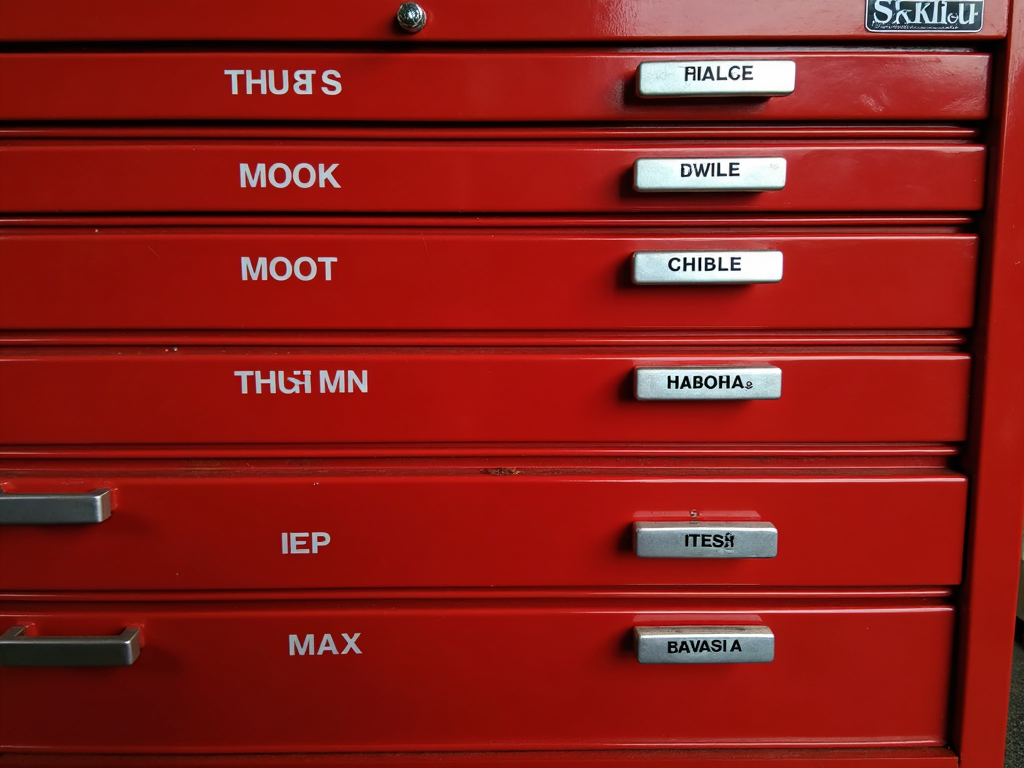
4. Magnetic Strips: Quick Access to Metal Tools
Magnetic strips are a simple yet effective way to store metal tools like screwdrivers, wrenches, and pliers. They're inexpensive, easy to install, and keep your tools within arm's reach.
You can find magnetic strips at most hardware stores or online. For an even cheaper option, repurpose old refrigerator magnets or magnetic knife holders.
Tip: Mount magnetic strips near your workbench for quick access to frequently used tools.
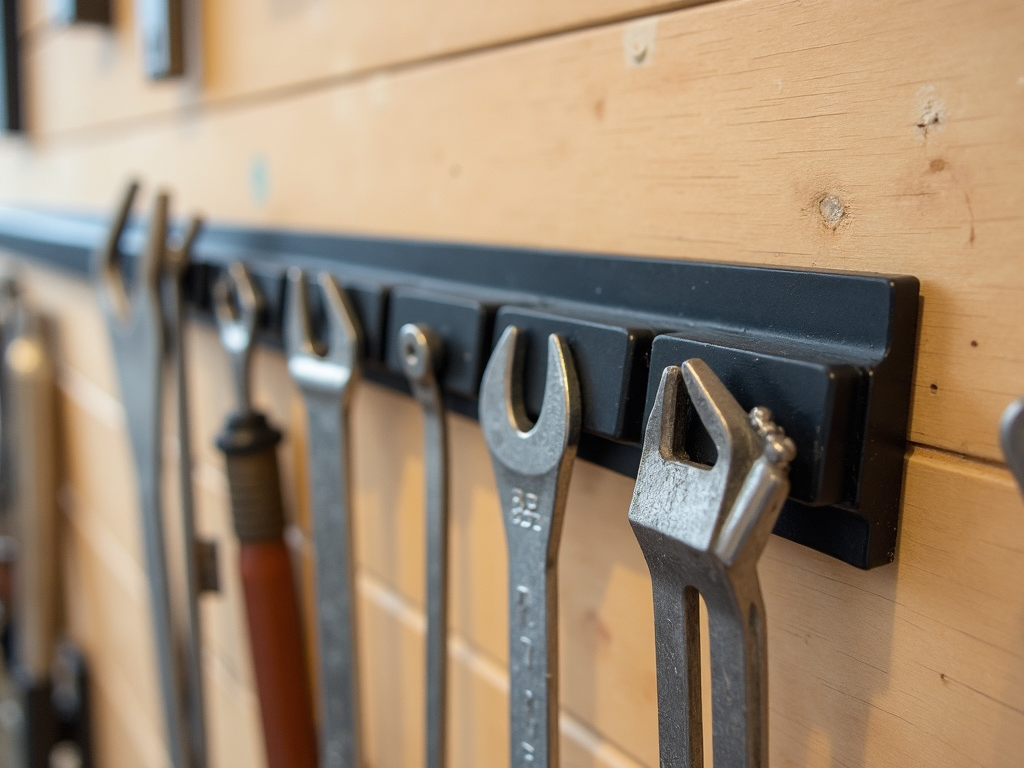
5. Jars and Containers: Organize Small Items
Small items like screws, nails, and bolts can quickly create clutter in a workshop. To keep them organized, use clear jars or containers. This allows you to see what's inside at a glance and keeps everything neatly sorted.
For a budget-friendly solution, repurpose old glass jars, plastic containers, or even muffin tins. You can also purchase inexpensive storage bins from dollar stores or discount retailers.
Tip: Label your containers clearly to make it easy to find what you need.
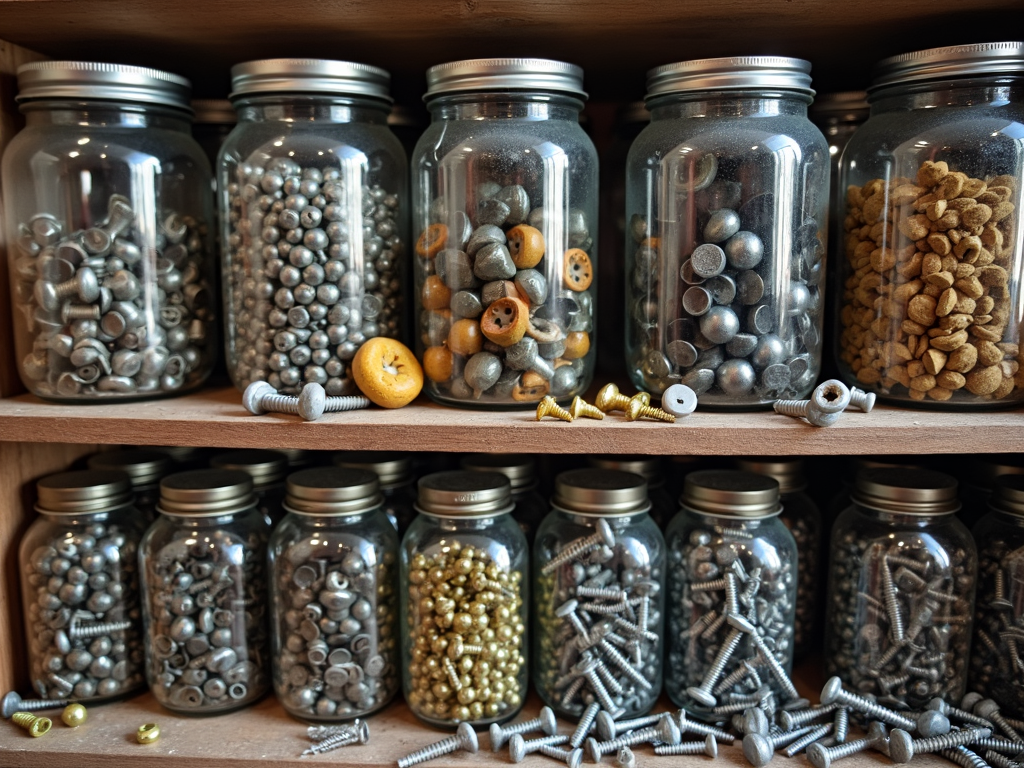
Organizing Workman Tools
Workman tools, such as hammers, screwdrivers, and wrenches, are essential for any workshop. Keeping them organized is crucial for efficiency and safety.
Here are some budget-friendly ways to organize your workman tools:
- Tool belts: For tools you use frequently, consider a tool belt. This keeps your most-used items within easy reach while you work.
- Wall-mounted racks: Install hooks or racks on your walls to hang larger tools like hammers and mallets.
- Drawer organizers: Use dividers or small containers to keep screwdrivers and wrenches sorted in your toolbox drawers.
Personal Insight: In my own workshop, I use a combination of a pegboard for larger tools and a toolbox with custom foam inserts for smaller items. This system has dramatically improved my workflow and reduced the time I spend searching for tools.
Maximizing Space in a Small Workshop
If you have a small workshop, every inch counts. Here are some strategies to make the most of your limited space:
- Go vertical: Install shelves, pegboards, and wall-mounted storage to free up floor space.
- Use multi-functional furniture: Look for workbenches with built-in storage or fold-down tables that can be tucked away when not in use.
- Implement a 'one in, one out' rule: For every new tool you acquire, consider donating or selling an old one to prevent clutter from building up.
- Utilize under-bench storage: Add drawers or shelves beneath your workbench to store less frequently used items.
- Think outside the box: Get creative with storage solutions. For example, use an old ladder as a shelving unit or hang tools from the ceiling with hooks.
Tip: Take measurements of your workshop and create a floor plan before implementing any major changes. This will help you visualize how to best utilize your space.
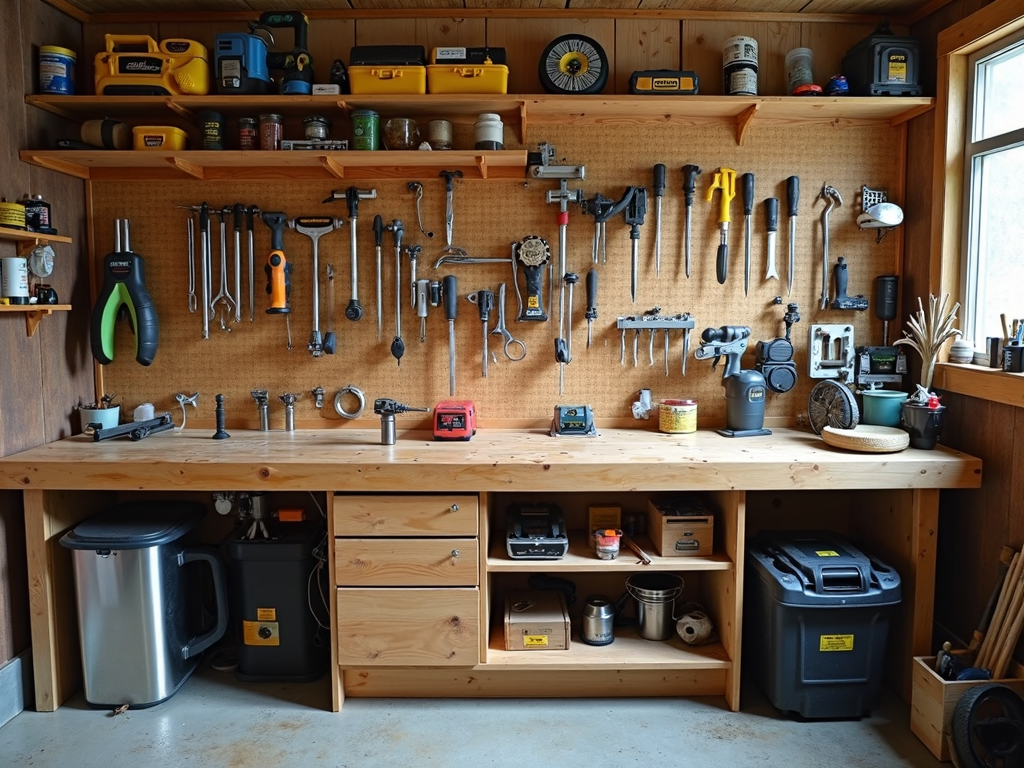
Conclusion
Organizing your workshop doesn't have to be expensive or overwhelming. By implementing these budget-friendly solutions, you can create a functional, efficient, and safe workspace that enhances your DIY projects. Remember, the key is to be creative and resourceful – often, the best storage solutions come from repurposing items you already have.
Start small by tackling one area of your workshop at a time. Before you know it, you'll have a clutter-free space that inspires productivity and creativity.
For more inspiration and detailed guides, check out the recommended readings below.
Related DIY Workshop Organization: Budget-Friendly Solutions:
- Essential Safety Gear for Electricians
- The Importance of Workplace Safety and Ergonomics
- Essential Workman Tools for Plumbing: A Complete Guide
- Essential Safety Tips for Using Power Tools: A Comprehensive Guide
- Beginner’s Guide to Power Tools: Drills, Saws, and More
- Maintaining Your Metalworking Tools for Safety and Performance
- The Electrician's Guide to Advanced Automation Tools
- Painting Tools Every Artist Needs
- Top 10 Tools Every Workman Should Own: A Comprehensive Guide
- How to Pick the Perfect Table Saw: A Beginner's Guide
- Top 10 Essential Tools Every Workman Should Own: A Comprehensive Guide
- DIY Painting Hacks for Perfect Results
